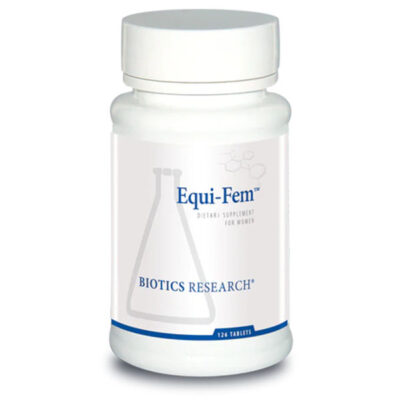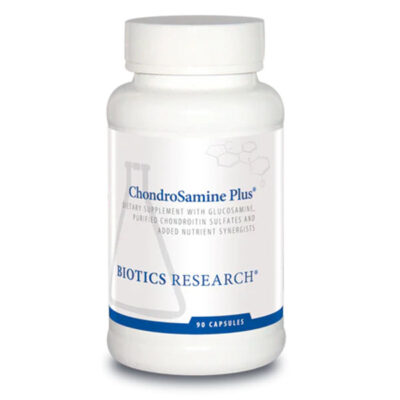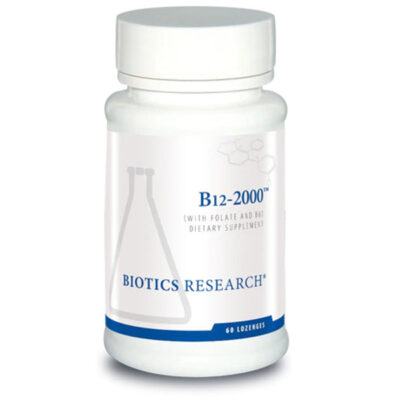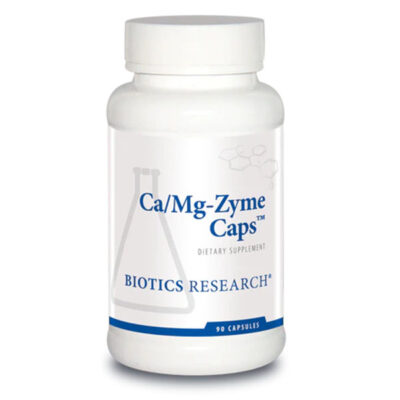LIPOIC ACID PLUS (Antioxidant Helper) – 90 Capsules
*** Please Login or Register with DC Nutrition to see Prices and Add To Cart. ***
Login | Create An Account / Register
Lipoic acid (alpha-lipoic acid, thioctic acid) is a sulfur-containing enzyme helper involved in carbohydrate degradation. Lipoic acid functions in the oxidation of carbohydrate by the mitochondria, subcellular particles devoted to energy production.
Lipoic Acid, as a fat-soluble co-enzyme, operates as a cofactor in the metabolism of glucose and oxygen utilization.
We have body builders and other athletes use Lipoic Acid (200 mg) with Creatine. Lipoic Acid aids in getting the Creatine inside the muscle cells more efficiently. This is accomplished by making the cells more sensitive to Insulin.
Lipoic Acid works to recycle and reactivate such free radical scavengers as Vitamins C and E, thereby maximizing utilization of these vitamins as antioxidants.
We use Lipoic Acid in those cases where a potentiation of antioxidation is needed. We also use this product with diabetes.
PRODUCT DESCRIPTION
LIPOIC ACID PLUS
**Each capsule supplies:
Alpha-Lipoic Acid 100 mg
NOTE: Blotics Research Corporation uses only the highest quality Lipoic acid in its products. There is no consideration given to commonly used material from third world sources with questionable production methods offered at significantly lower prices.
RECOMMENDATIONS: One (1) capsule each day as a dietary supplement or as otherwise directed by a health care professional.
Contains: 90 Capsules
Product #: 5199
NDC: 55146-05200
ADDENDUM
Author of The Potato Antioxidant, Alpha Lipoic Acid
French fries, hash browns, tater tots, potato chips, scalloped potatoes, mashed potatoes, baked potatoes, twice baked potatoes.... With all the great stuff you can do with 'em, no wonder everyone loves potatoes. Some people think potatoes are fattening, but they are not at all. It just depends on what you add to them. Potatoes are actually loaded with cholesterol-lowering fiber, and potassium, which maintains fluid and electrolyte balance as well as normal heart function and blood pressure. But wait till you hear about Alpha-Lipoic Acid, a little-known substance found in potatoes!
Alpha-lipoic acid is a vitamin-like antioxidant that is produced naturally in the body and in foods like potatoes. We have known about its existence since the 1930's when it was discovered that a so-called "potato growth factor" was necessary for growth of certain bacteria. Years later in 1957, the compound was extracted, and formally identified as Alpha Lipoic Acid.
Through years of research, the unique metabolic antioxidant properties of alpha lipoic acid have been clearly demonstrated and while it is not yet a widely known substance, this is sure to change soon. Alpha-Lipoic Acid holds great promise as a free radical protectant for our cells as it is the only antioxidant which is both fat and water-soluble. Lipoic acid is easily absorbed and transported across cell membranes. This offers us protection against free radicals both inside the cells and outside the cell. This is unlike many other antioxidants which only provide extracellular protection.
Inside the cell, alpha-lipoic acid is readily reduced or broken down to dihydrolipoic acid. Dihydrolipoic acid is even more potent than alpha lipoic acid, neutralizing free radicals, preventing them from causing harm. It directly destroys damaging superoxide radicals, hydroperoxy radicals and hydroxyl radicals. We encounter these oxidants every day through exposure to cigarette smoke, car exhaust, irradiation, polluted air, alcohol, sunshine, etc. We continuously form superoxides as a natural part of respiration and metabolism. We create free radicals as we convert the food we eat to energy.
Free radicals damage membranes (creating capillary fragility, and is associated with cardiovascular disease), damage to proteins creating cataracts, and breakdown of elastin and collagen which are associated with aging and wrinkles, and cancer. In addition to its antioxidant properties, alpha lipoic acid has a number of unique applications leading to its great health promoting abilities.
Alpha-Lipoic Acid actually regenerates other antioxidants such as C, E and glutathione, prolonging their existence in the body. This is actually of great significance in that it allows us to take our antioxidant supplements once instead oftwice daily.
Protects us from arterial plaque and cholesterol buildup
Free radical formation through the oxidation of low density lipoproteins (LDL) creates arterial cholesterol deposits associated with atherosclerosis. It has been suggested that vitamin E transported by LDL plays a critical role in protecting against this LDL oxidation. The maintenance of sufficiently high vitamin E concentrations in LDL can be achieved by reducing its free radicals, i.e., by vitamin E recycling. A study published in 1992 by the Journal of lipid Research demonstrated that dihydrolipoic acid recycles vitamin E by synergistically interacting with ascorbate. The study also noted that while beta-carotene is not active in vitamin E recycling, it may itself protect against oxidative destruction (Kagan).
Drinkers and Smokers
Because of the beneficial recycling effects on glutathione and other antioxidants, Alpha lipoic acid is the perfect antioxidant for drinkers and smokers because it neutralizes these toxins and also protects us from secondhand smoke. Alpha lipoic acid actually protects the liver from damage from alcohol (Morgan).
Benefits Diabetic Individuals
Diabetes is one of the major degenerative diseases in the United States and is a major risk for the development of cardiovascular disease. It is characterized by a reduced ability to use and metabolize carbohydrates. A recent study of great significance published by the Germans reported that alpha-lipoic acid enhanced glucose disposal in patients with Type II diabetes (NIDDM). Insulin resistance of skeletal muscle glucose uptake is a prominent problem of NIDDM; therefore improvement of insulin sensitivity would be of great benefit The study used groups comparable in age, body-mass index and duration of diabetes and had a similar degree of insulin resistance at baseline. Administration of alpha-lipoic acid resulted in a significant increase of insulin-stimulated glucose disposal; metabolic clearance rate for glucose rose by about 50% whereas the control group did not show any significant change (Jacob).
One of the major problems among diabetics is the associated complications. Alpha-lipoic acid has been successfully used throughout Europe for many years to help treat and prevent complications associated with diabetes including neuropathy and cataracts. Alpha-lipoic acid improves nerve blood flow, reduces oxidative stress, and improves distal nerve conduction in experimental diabetic neuropathy. A study at the Mayo Foundation in Rochester, Minnesota, demonstrated that alpha-lipoic acid will reduce oxidative stress in diabetic peripheral nerves and improve neuropathy. Lipoic acid did not affect the nerve blood flow of normal nerves but improved that of diabetic neuropathy in a dose-dependent manner.
After 1 month of treatment, the alpha-lipoic acid group exhibited normal blood flow. The most sensitive and reliable indicator of oxidative stress was reduction in reduced glutathione, which was significantly reduced in the diabetic and alpha-tocopherol-deficient nerves; it was improved in a dose-dependent manner in the lipoic acid group. Nerve conduction was also significantly improved by the lipoic acid (Nagamatsu).
Protection Against Cataracts
Glutathione is an important free radical deactivator offering protection against cataract formation, as well as immune enhancement, liver protection, cancer protection and heavy metal detoxification. Regeneration of this nutrient by alpha-lipoic acid enhances all of these properties. Researchers at the University of California, Berkeley investigated the effect of alpha-lipoic acid on cataract formation in specially treated newborn rats and found that a dose of 25 mg/kg body weight protected 60% of animals from cataract formation. The treatment used to promote cataract formation was an inhibitor of glutathione synthesis. Major biochemical changes in the lens associated with the protective effect of alpha-lipoic acid were increases in glutathione, ascorbate, and vitamin E levels. Treatment with alpha-lipoic acid also restored the activities of glutathione peroxidase, catalase, and ascorbate free radical reductase in lenses of the treated animals but did not affect glutathione reductase or superoxide dismutase activity. They concluded that alpha-lipoic acid may take over some of the functions of glutathione (e.g., maintaining the higher level of ascorbate, indirect participation in vitamin E recycling); the increase of glutathione level in lens tissue offering the resulting protection. Thus, alpha-lipoic acid could be of potential therapeutic use in preventing cataracts and their complications (Maitra).
Cofactor for Energy Production
Under normal conditions, alpha lipoic acid functions in the body as a cofactor for a number of vital enzymes responsible for metabolism of our food to chemical energy (ATP). Alpha-lipoic acid acts as a coenzyme at the active site of enzyme complexes. Lipoic acid facilitates the metabolism of glucose to energy. While deficiencies are rare, we cannot thrive without it. In order to perform antioxidant functions in the body, alpha-lipoic acid must be present in amounts significantly higher than normal. Therefore, supplementation is required for this great benefit to be obtained. While some of the human studies involve supplementation as high as 1,000 mg daily, 100 mg daily is sufficient to obtain antioxidant effects in most cases. An added bonus, it's very affordable.
Naturally Found in Foods We Eat Every Day
Outside the body, alpha lipoic acid is found in the leaves of plants containing mitochondria and in non-photosynthetic plant tissues, such as potatoes, carrots, beets, yams, kohlrabi and others. Red meat is among the rich sources of naturally-occurring alpha-lipoic acid. Good thing...since beef is also loaded with cholesterol! It's interesting how nature seems to have a way of balancing things out.






Reviews
There are no reviews yet.